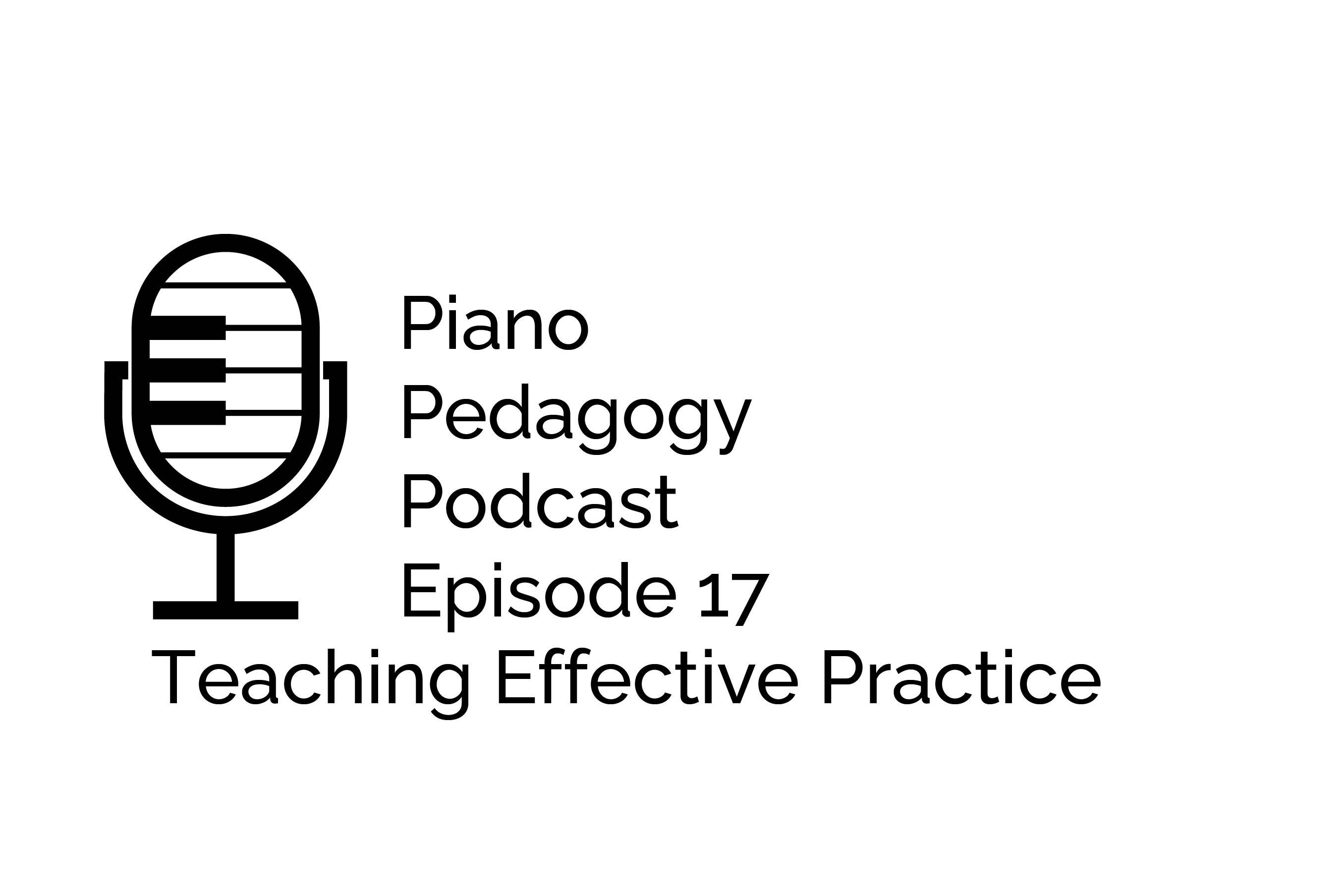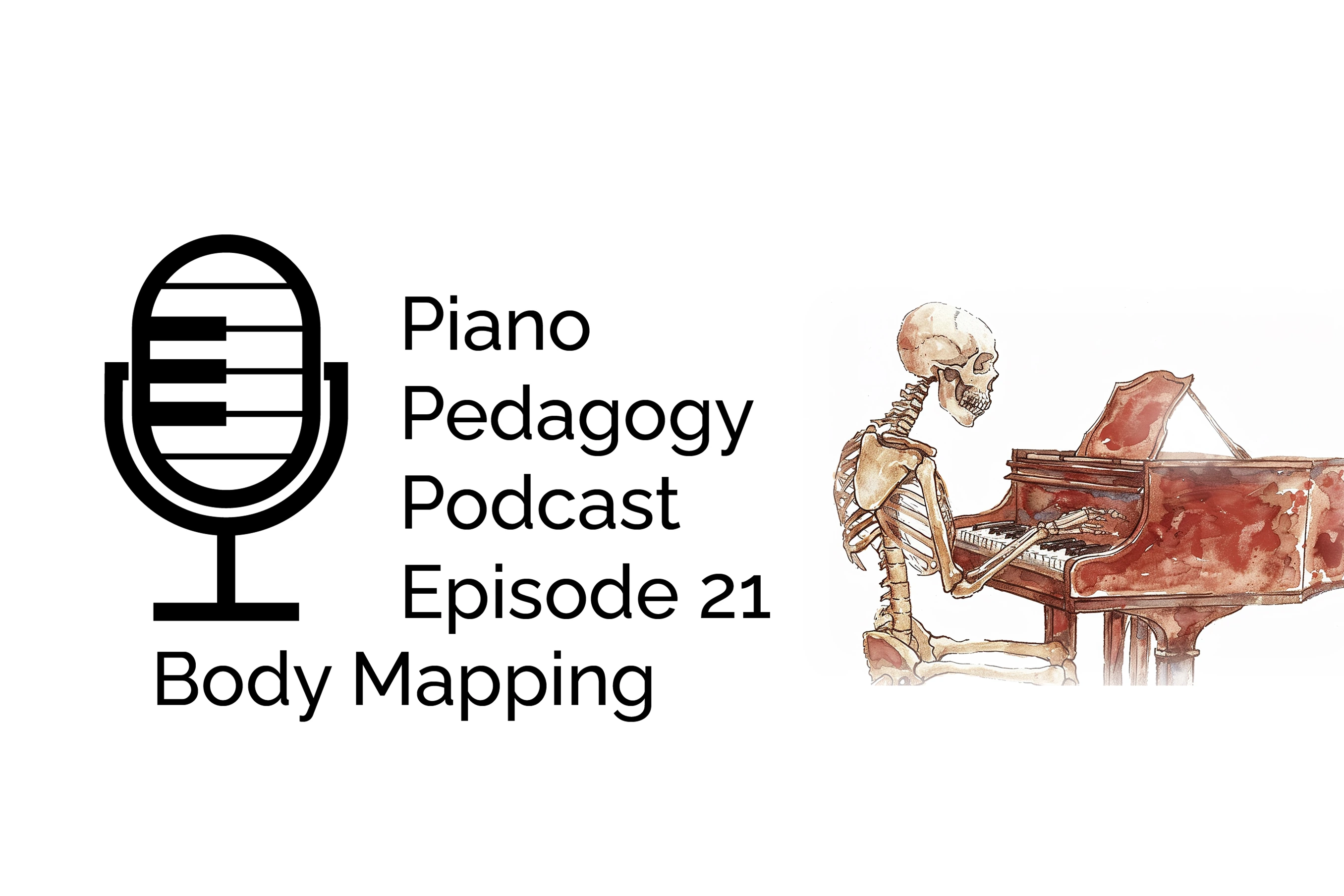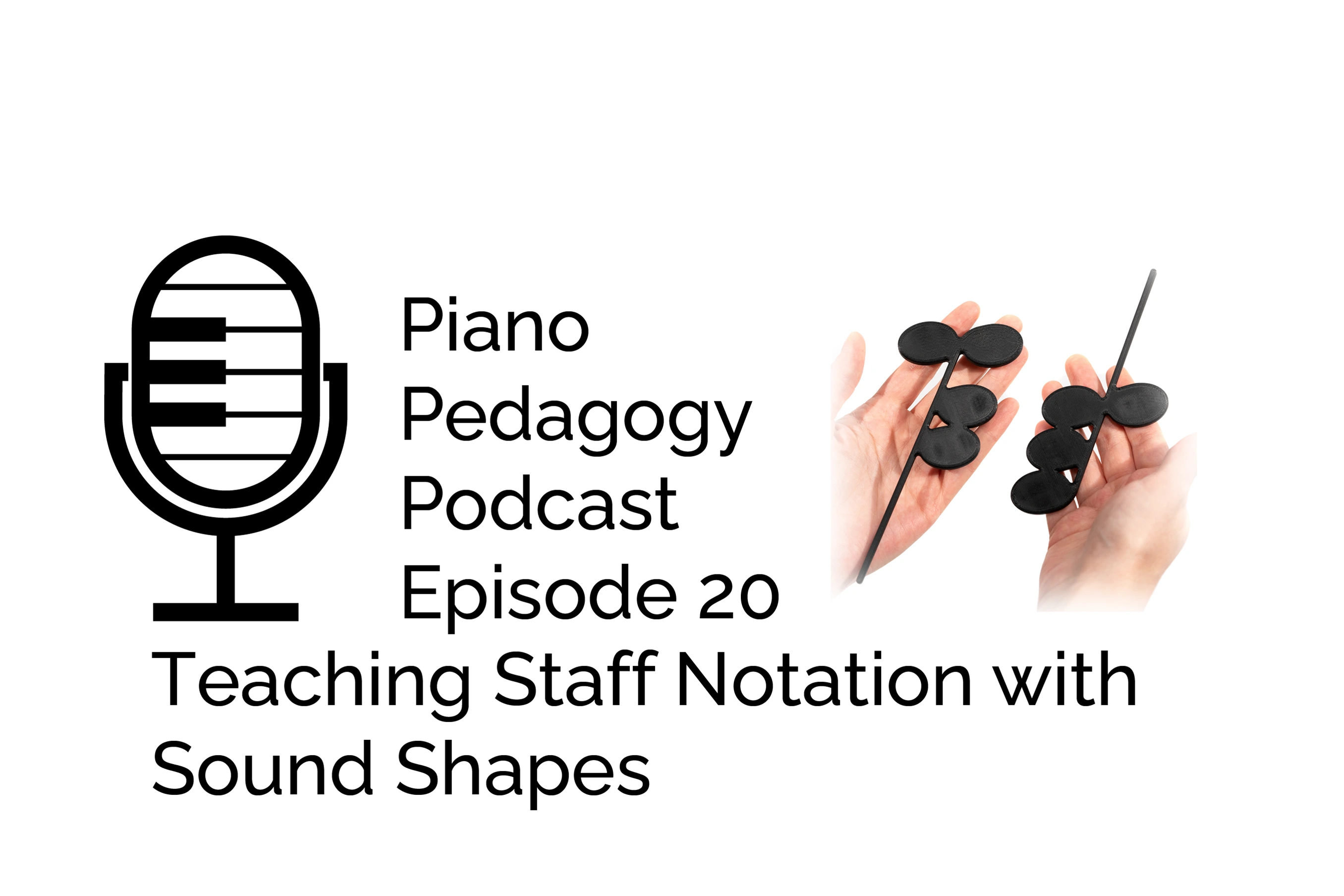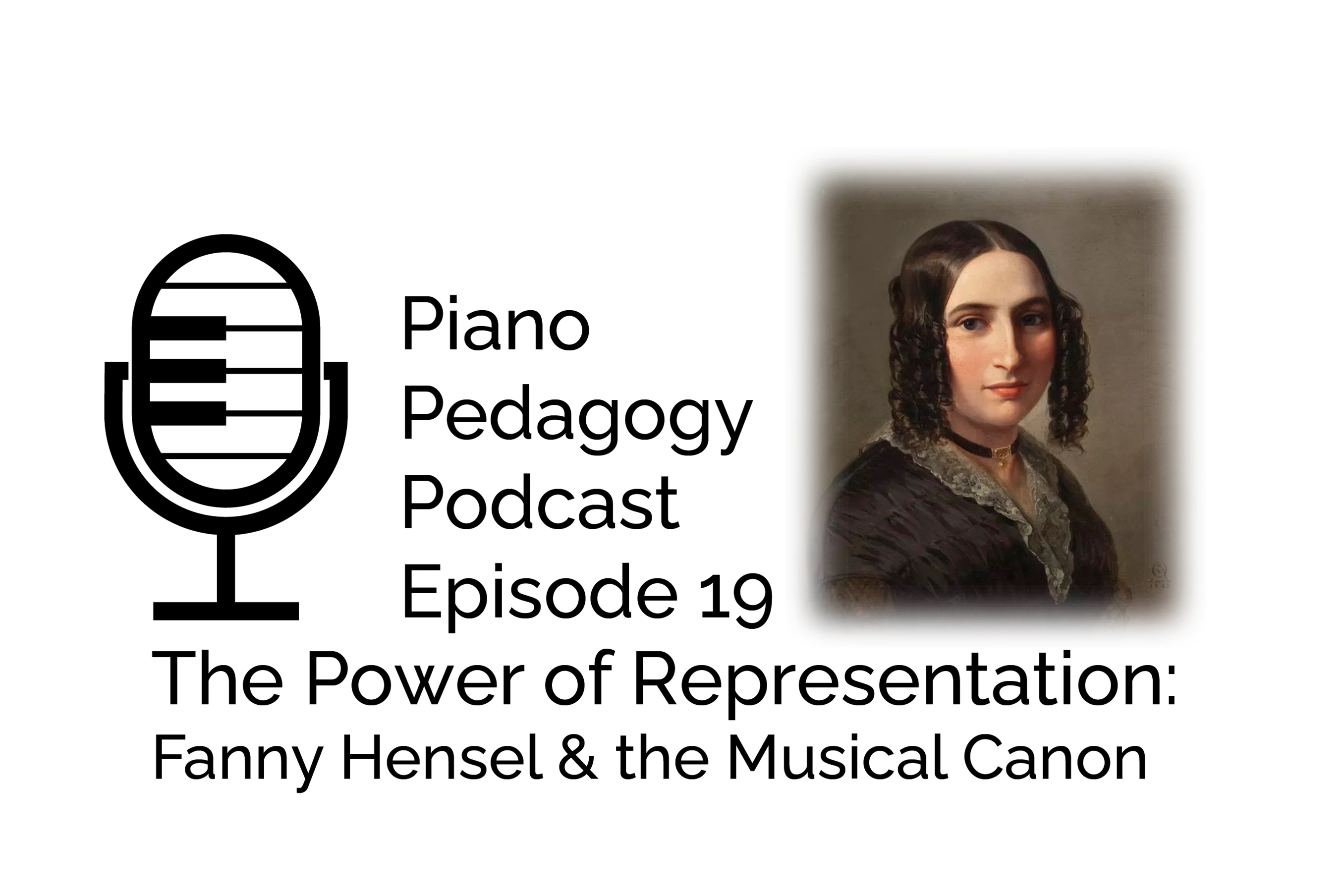Piano Pedagogy Podcast Episode 17: Teaching Effective Practice

On this episode we're diving deep into the crucial topic of practice - an essential aspect of musicianship that many teachers struggle to teach effectively. We'll explore seven key principles of practice and some practical methods to implement them. Watch this episode on Spotify, Apple Podcasts, YouTube, or your favorite podcasting app!
7 Principles of Effective Piano Practice
Before we delve into the principles, let's establish three fundamental truths about practice:
- Practice is essential to being a musician.
- Practice is personal to each musician.
- Practice must be learned (and therefore, taught).
With these in mind, let's explore the seven principles that can transform your students' practice sessions.
1. Practice, Don't Perform
Principle: Practicing requires a different mindset than performing.
Application: When practicing, students should:
- Not start at the beginning and play through to the end
- Not ignore mistakes
- Use practice tools (metronome, counting out loud, etc.)
2. Do Your Warmups
Principle: Warmups prepare students both physically and mentally for practice.
Benefits:
- Takes less than 5 minutes
- Creates a routine to help students get into the right frame of mind
- Significantly impacts practice outcomes
3. Small to Large
Principle: Break pieces into smaller sections, learn them separately, then combine.
Application:
- Divide music into sections (e.g., phrases, lines, or groups of measures)
- Learn each section thoroughly
- Gradually combine sections to form the complete piece
4. Set the Stage for Success
Principle: Most mistakes are avoidable by controlling the difficulty level.
Application: Students can adjust:
- Tempo
- Amount of music practiced at once
- Number of musical elements focused on
- Practice tools used
- Practice method employed
Key action: If a mistake happens, STOP immediately and address it.
5. Quality over Quantity
Principle: One perfect measure is better than 100 mediocre measures.
Benefits:
- Saves time in the long run
- Reduces the need to relearn and fix mistakes later
- Builds confidence and mastery
6. Use Your Practice Tools
Digital Tools: Task app, pomodromo timers, practice apps, metronome, recording devices, YouTube
Physical Tools: Pencils and colored pencils for making notes
Musical Tools: Counting, tapping, blocking, etc.
7. Stay Organized
Principle: Set clear objectives and track progress.
Application:
- Write down 3 goals for each practice session
- Keep a practice journal
- Reflect on progress and set new goals regularly
Effective Practice Methods
To implement these principles, here are three powerful practice methods:
1. Tap, Block, and Play
Steps:
- Tap: Count and tap the rhythm on the fallboard or lap
- Block: Press all notes in each measure simultaneously
- Play: Combine the rhythm and notes, maintaining the count
This method is excellent for young students and adults at the elementary level.
2. Building Backwards
Process:
- Start with the last section of the piece
- Master it, then add the previous section
- Continue building backwards until reaching the beginning
Benefits:
- Creates a strong ending
- Builds confidence as students progress through the piece
- Ensures smooth transitions between sections
3. Overlapping Units
Process:
- Practice measures 1-2, then 2-3, then 3-4, etc.
- Increase to three-measure units: 1-3, 2-4, 3-5, etc.
- Continue increasing the unit size
Benefits:
- Ensures smooth transitions between measures
- Great for dense music like Bach fugues
- Creates a "woven" effect in learning
Conclusion
Effective practice is a skill that must be taught and learned. By implementing these seven principles and using targeted practice methods, you can help your students make the most of their practice time. Remember, changes don't happen overnight. Start by focusing on one principle or method at a time, and gradually build your students' practice toolbox.


